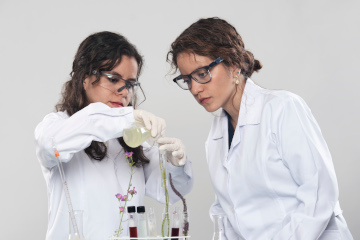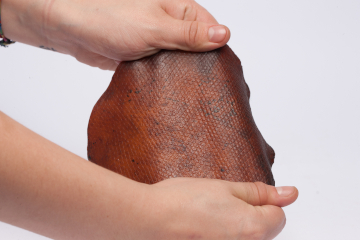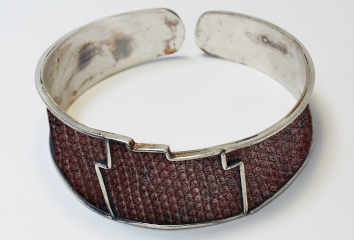Fixing Fashion
Isemar and Jacqueline were inspired by the problem of chromium pollution from leather tanneries in their hometown of Arequipa, Peru. Jacqueline recalls seeing the degrading effects this industry was having on the local water supply, saying, “When we were younger, you could always see the fish in the river. Now, the pollution has gotten so bad, you can no longer see them.” Isemar studied biotechnological engineering and fashion design, while Jacqueline studied industrial engineering, and the sisters were determined to find a solution. In 2017, they founded Le Qara, which means “leather” in Quechua, the native language of the Inca empire native to Peru. The start-up’s goal is to transform the leather industry towards sustainability and circularity.
Mighty Microorganisms
Le Qara’s new and standardized methods use a microbial consortium to produce vegan leather, thus enabling clothing brands to offer their customers more environmentally-friendly options. Essentially, this entails feeding microorganisms with plants and fruit residues (that currently just goes to waste and is not suitable for human consumption), which then produce a leather-like biomaterial.
This material is biodegradable and demonstrates the same quality and resistance as leather, and its characteristics can be adjusted to fit the needs of fashion brands. Furthermore, this process does not involve the slaughter of animals, use of toxins, or even generation of any waste, as the resulting residues can be used as liquid compost. The characteristics of Le Qara’s biomaterial and the circularity of its process ultimately means that consumers have a new choice besides traditional animal leather and its plastic-based imitations – a natural biomaterial with all the characteristics and quality of leather.
Addressing the SDGs through Sustainable Chemistry
Le Qara’s innovations support the SDGs in numerous ways. First, by innovating a no-waste process and facilitating a circular economy, Le Qara supports Responsible Consumption & Production (SDG 12). Furthermore, the modern leather industry uses 400 million liters of water annually, and much of this is polluted during the production process. Through its alternative methods and materials, Le Qara thus protects quality of water supply and marine environments (SDGs 6 & 14). Finally, the start-up promotes Good Health and Well-Being (SDG 3) by removing deadly and carcinogenic toxins, such as chromium sulfate, from leather manufacturing processes.
A New Lease on Leather
In addition to its two co-founders, Le Qara now includes three other full-time employees and they are currently preparing a pilot production plant in Arequipa. With not many start-ups operating in biomaterials in Peru, Le Qara is leading the transformation towards circularity in this sector, while also tapping into the emerging international sustainable chemistry community. Le Qara has been on-boarded into the ISC3 Global Start-Up Service since November 2019 and has received networking guidance to help advance its product portfolio. Ultimately, Isemar and Jacqueline believe this collaboration can help Le Qara to lead the way in revolutionizing the leather industry.




